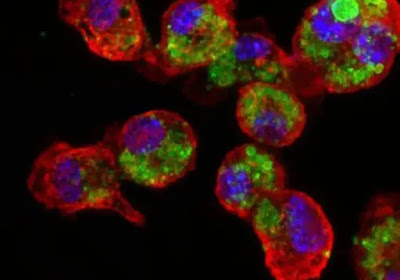August 5, 2019 18:41
So far, the approach has been tested and proven effective in preventing the development of melanoma in mouse models.
“But the vaccine approach, which has proven so effective against
various viral diseases, has not materialized yet against cancer,” she
said. “In our study, we have shown that it is possible to produce an
effective nano-vaccine against melanoma and to sensitize the immune
system to immunotherapies.”
Satchi-Fainaro led the study, working with Prof. Helena Florindo of
the University of Lisbon while she was on sabbatical at
Satchi-Fainaro’s lab at TAU; it was conducted by Dr. Anna Scomparin and
Dr. João Conniot.
The focus of the research is a nano-particle that serves as the
basis for the new vaccine. So far, the approach has been tested and
proven effective in preventing the development of melanoma in mouse
models, and in treating primary tumors and metastases that result from
melanoma.
Melanoma develops when unrepaired DNA damage to skin cells – most
often caused by ultraviolet radiation from sunshine or tanning beds –
triggers genetic defects that lead them to multiply rapidly and form
malignant tumors.
According to the Skin Cancer Foundation, an estimated 192,310 cases
of melanoma will be diagnosed in the United States this year. The
majority are black or brown, but they can also be skin-colored, pink,
red, purple, blue or white.
“The idea is not to find a way to encourage people to get tanned
without worrying about it if they were vaccinated,” warned
Satchi-Fainaro. “We tested two scenarios: one of prevention, which is
intended toward sub-populations at risk, such as those that already had a
primary melanoma that was resected. We hope that the vaccine will
prevent recurrence and metastasis.
“The second scenario was an intervention study where the mice
already had melanoma and we treated them with a combination of the
vaccine and immunotherapy,” she continued. “Here we showed that the
vaccine augmented the anticancer effect of the immunotherapy by
inhibiting tumor growth and prolonging overall survival.”
Specifically, the researchers harnessed tiny particles, about 170
nanometers in size, made of a biodegradable polymer. Within each
particle, they “packed” two peptides – short chains of amino acids that
are expressed in melanoma cells. They then injected the nano-particles
(or “nano-vaccines”) into a mouse model bearing melanoma.
The nano-particles stimulated the immune system of the mice, and
the immune cells learned to identify and attack cells containing the
melanoma cells.

Комментариев нет:
Отправить комментарий